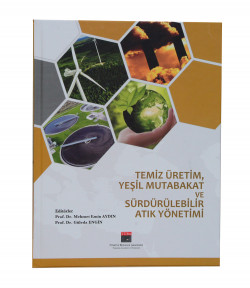Management Of Biodegradable Wastes In The Framework Of Climate Crisis And Green Deal

Management Of Biodegradable Wastes In The Framework Of Climate Crisis And Green Deal
The Green Deal aims to reduce greenhouse gas emissions in all sectors as a collective effort against the climate crisis. Considering that 5%of global greenhouse gas emissions originate solely from the waste sector, it is necessary to minimize waste generation. If waste generation cannot be avoided, especially biodegradable wastes should be treated as valuable resources and evaluated using different processes instead of being landfilled. This study extensively discusses the disposal of biodegradable wastes using conventional methods (landfilling, composting, biomethanization) as well as innovative processes (carboxylic acid, biopolymer, microbial protein production). The effects of these processes on greenhouse gas emissions were compared. Furthermore, the sustainability of these disposal methods was analyzed based on different parameters such as energy requirement, final products, and required process time. The study concludes that compared to landfilling, evaluation of biodegradable wastes as a resource and its management through composting, biomethanization, or innovative bioprocesses with zero or negative greenhouse gas emissions can lead to a significant reduction of up to 95%in methane emissions. Additionally, these alternative processes offer the possibility of recovering industrial raw materials, food and animal feed additives, soil conditioners, and organic fertilizers from biodegradable waste, thus eliminating the need for landfilling.
